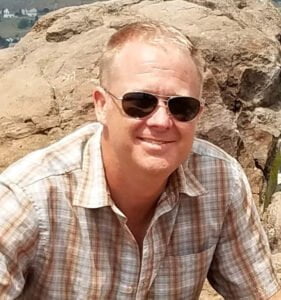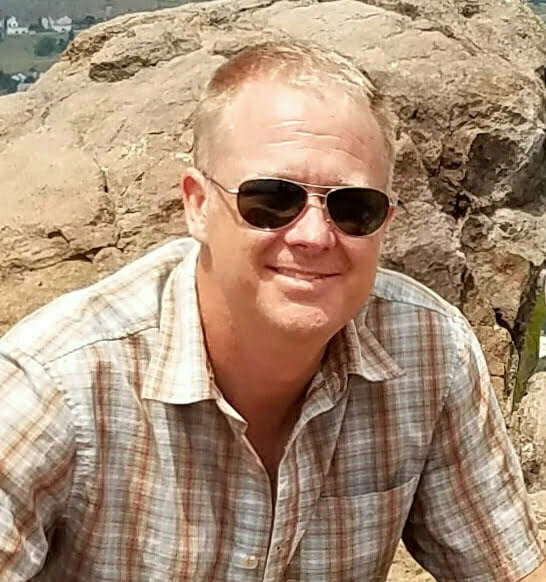 By David Wetherington, D.D.S.
By David Wetherington, D.D.S.
From the Fall 2020 Journal of the Colorado Dental Association
I’m writing this from my couch. It’s noon on a Wednesday, which still seems weird to me, but somehow also feels normal. Back in February, I would have been seeing patients and working on several side projects.
But then life came to a halt. COVID-19 brought this experience to everyone—but for me, it wasn’t the first time my life was halted.
I was 23 the first time my world flipped on its side. I had just graduated dental school on an Air Force scholarship. Two months into active duty, though, I wasn’t feeling so well. A few tests and a few weeks later, I learned I had an autoimmune kidney disease with a good prognosis.
Okay, plans change, I thought. No big deal.
That was Life Interruption #1.
Fast forward five years, and my kidneys were faring worse. Even though I felt fine, the Air Force decided I was no longer healthy enough for active duty so they handed me a medical retirement. That meant I could keep my health insurance, but it also meant I was scrambling to make new plans.
Life Interruption #2.
Thankfully, I landed on my feet. Another five years later, I was 10 years into my career as a dentist, and I had a successful practice, a lovely wife, and a child. My kidneys had improved, and my prognosis followed suit, so I got comfortable.
And then my kidneys failed, without a lot of heads up.
Life Interruption #3.
Juggling dialysis with the typical stresses of a midlife family man was a challenge, particularly when I added in the headache of trying to sell my dental practice when my wife and I decided to move from California to Colorado—a place I’d loved during my Air Force days—for the healthier outdoorsy lifestyle.
After six months of dialysis, I had a successful kidney transplant, thanks to a family member who was an excellent match and willing to donate. Four months of recovery, and my prognosis was looking good again. I saw a chance for a long stretch of health.
I thought I was in the clear.
Fast forward another five years, and my autoimmune condition was attacking the new kidney, which is somewhat rare for an already rare condition.
Crap. Life Interruption #4.
I knew what was coming, so I decided to preemptively sell this practice too, and use my last few months of health for an epic family road trip before settling in for what I assumed would be five or six years of dialysis while I waited on the transplant list.
But I got lucky. A former patient remembered me when a family member died unexpectedly. She tracked me down, successfully allocating one of the family member’s kidneys to me.
I was unemployed for a total of 18 months during dialysis and a transplant recovery that was riddled with serious complications. When I returned to work, it was part-time. With all my experience buying and selling my own practices, I started brokering for others. On the side, I worked for a nonprofit, making dentures for nursing home residents, which proved very rewarding.
I was beginning to realize these life interruptions gave me permission to step off the treadmill and seize what I wanted out of life, now. I used to tell friends and family that I wished they, too, could step back from life’s hustle and face their mortality while young, but without the severe illness. The perspective can be liberating.
Then came 2020.
I’d been back to work for just seven months in February, when we went into full isolation mode. Neither of my jobs was possible in lockdown.
Life Interruption #5.
I’m still living this life interruption. COVID-19 has a fatality rate of 15-28% for folks like me, so my doctor advised me to stay home. Here I sit, waiting for what comes next, trying to make life fun for my social 8-year-old, who can’t join her friends for activities she enjoys. I’m taking life as it comes.
When I was young, I was a driven man with big plans. Today, I find myself more content, and driven in a different direction, a simpler one. My life interruptions have taught me to accept things that are out of my control rather than fight them, and to savor the moments—to live in them while they are happening. These lessons were the perfect preparation to weather this current storm.
This doesn’t mean my life is anxiety-free. Just like everyone else, I want normalcy for my family—particularly my daughter—as we see our social circle increasingly shrink due to our necessary isolation. Despite my best efforts, I still bang my head against the walls of things I can’t control. I’m frustrated that many in society seem to have forgotten about making efforts to protect at-risk folks, which was supposed to be a major consideration in plans to reopen society. (Please wear a mask. Yes, outside on the trails. For people who are immunocompromised, the great outdoors is our only outlet.)
Paradoxically, accepting hard things I can’t control has also allowed me to appreciate all the luck I’ve had, which I also had no control over. My family is still afloat, comfortable. Thanks to my medical retirement from the Air Force, we still have healthcare. I am grateful.
And I’m grateful I’ve gotten to share my experience with several dental colleagues who, with this uninvited step back of 2020, have realized they were chasing goals they weren’t sure they wanted anymore, and can now reimagine their careers.
We can’t control whether there will be a tomorrow or what it will look like, but we do have today. Now, in my 40s, I think I finally understand that when a Life Interruption hits, I can choose to roll with it. I might even land on my feet.


